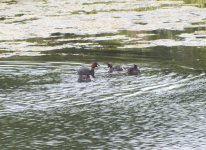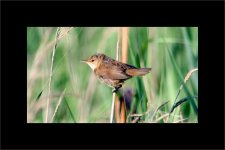Flemingo
I'm always wrong and it's always my fault
Sorry folks but I hope not, they have wiped out the entire fish population along that stretch and are now starting on local ponds, years ago I loved to see them , but now there are too many re-introductions of the non indigenous species, what will happen next, they will start on the avian population, along this stretch of river, as they have in other places along the Stour,:eek!:- I see them every weekend when I am fishing, and they are everywhere along the river. And indeed in most other rivers in the UK the same thing is happening.:eek!:
I doubt very much that the entire fish population has been wiped out. They may be efficient predators but not that efficient. It would be niave to think that otters will have no effect and it is probable that the number of fish has been reduced and this may be visible to anglers. (Especially if larger fish are taken.) Either a new steady state will develop between fish numbers and otters or the numbers of fish will become so low that the otters will move on and numbers will then increase again and otters return and the cycle be repeated. The apocalyptic view of a barren river is not going to happen.
What do you mean local ponds? Garden ponds, fishing lakes or fisheries?
The original decline in otters was the result of enviromental pesticide contamination and loss of water quality resulting in reduced fish numbers. That is the reduction of fish numbers contributed to otter decline. With improved water quality and reduced pesticide usage a natural increase in population occured driven in part by increased fish numbers. Yes, there were reintroductions (mainly East Anglia) but these stopped in 1999 due to the rate of natural recovery.
They are not non-indiginous. They are a natural part of our country's fauna. (Bring back the beaver, bear and wolf!- Sorry, only kidding) Introduction of non-indiginous species is unlawful.
The diet of Otters consists of 85-90% fish. They do also eat crayfish, amphibians, small mammals, and birds. They are not adaptable enough to move on to these as their primary food source. If there are not enough fish they will move on.
I wish I was as lucky as you to see them everywhere. We need to remember that they are a natural part of our country's ecology and have been around a lot longer than anglers!
PS I have nothing against anglers or fishing.






